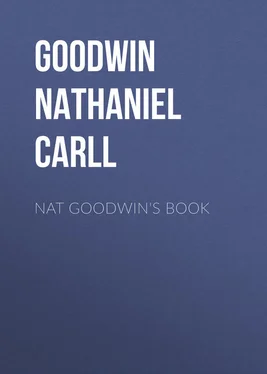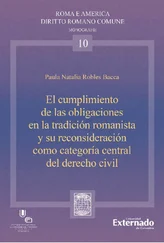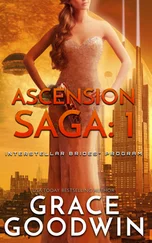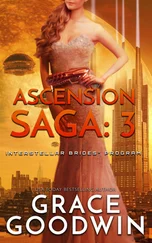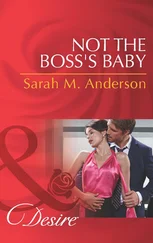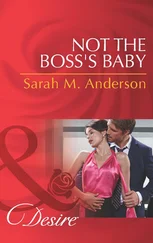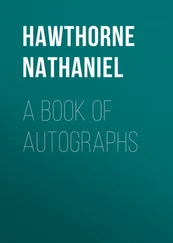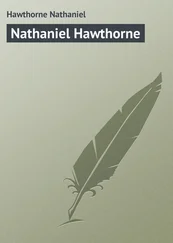Nathaniel Goodwin - Nat Goodwin's Book
Здесь есть возможность читать онлайн «Nathaniel Goodwin - Nat Goodwin's Book» — ознакомительный отрывок электронной книги совершенно бесплатно, а после прочтения отрывка купить полную версию. В некоторых случаях можно слушать аудио, скачать через торрент в формате fb2 и присутствует краткое содержание. Издательство: Иностранный паблик, Жанр: foreign_antique, foreign_prose, на английском языке. Описание произведения, (предисловие) а так же отзывы посетителей доступны на портале библиотеки ЛибКат.
- Название:Nat Goodwin's Book
- Автор:
- Издательство:Иностранный паблик
- Жанр:
- Год:неизвестен
- ISBN:нет данных
- Рейтинг книги:5 / 5. Голосов: 1
-
Избранное:Добавить в избранное
- Отзывы:
-
Ваша оценка:
- 100
- 1
- 2
- 3
- 4
- 5
Nat Goodwin's Book: краткое содержание, описание и аннотация
Предлагаем к чтению аннотацию, описание, краткое содержание или предисловие (зависит от того, что написал сам автор книги «Nat Goodwin's Book»). Если вы не нашли необходимую информацию о книге — напишите в комментариях, мы постараемся отыскать её.
Nat Goodwin's Book — читать онлайн ознакомительный отрывок
Ниже представлен текст книги, разбитый по страницам. Система сохранения места последней прочитанной страницы, позволяет с удобством читать онлайн бесплатно книгу «Nat Goodwin's Book», без необходимости каждый раз заново искать на чём Вы остановились. Поставьте закладку, и сможете в любой момент перейти на страницу, на которой закончили чтение.
Интервал:
Закладка:
Yet he lived among the great producers of his era – without producing!
Irving, who died almost penniless and who invested thousands of dollars in an earnest endeavor to uphold the drama, Lawrence Barrett and dear Edwin Booth, who lost a million in erecting a temple to Art only to see his name chiseled out by a dry goods establishment – these were truly great men.
I concede that Joseph Jefferson was "a great actor" as Rip – a most benign person, a charming companion. For this man I have the most profound respect; for what he did for the stage I have not. His performance of "Rip Van Winkle" was perhaps a very great one (I never saw Charles Burke). As for Bob Acres, I can only quote a really great actor, William Warren – "Jefferson played Bob in 'The Rivals' with Sheridan twenty miles away."
I have seen two men who are alive to-day play Sir Lucius O'Trigger in "The Joseph Jefferson Version of 'The Rivals'" and I have played it.
Which leaves me to imagine that all those who made a hit in the part are dead!
Chapter VII
A SUNNY SON OF SOMETIME
A sunny son of Sometime was Peter Dailey. When the Creator called him to join the merry throng that had passed before the world lost one of the sweetest characters that I have ever known. His memory will go laughing down the ages.
There were no clouds when Pete pranced among the men and women of the profession. He met you with the honest grip of a man and a smile that only the seraphs can appreciate. Never an unkind word left the brain that invented only sweet and wholesome sallies. The wit of a Sheridan and a repartee that made it an impertinence to attack made him impervious to all retort. As gentle as a fawn, as brave as a warrior, Pete Dailey was a man among men.
During a friendship of over twenty-five years I never heard him utter a profane word or use an obscene expression. No adjective was necessary to enhance a story of his, no preface to foretell the trend of his wit – which was as quick as the flight of a rifle ball.
When he was on tour with his own company some years ago he was chided for his familiarity with his company by a German comedian, Al Wilson. Wilson told him that he was losing his dignity by even associating with the members of his organization, following this by saying, "Why, Pete, I do not even speak to my company!" Pete replied, "Well, if I had a company like yours, I would not speak to them either."
It was useless for any author to give Pete lines to speak, his interpretations were so much better than any lines the author could invent. I well remember one of the first nights at Weber and Field's Music Hall, New York. He had a scene with Charles Bigelow who had apparently given much thought and study to his part. Bigelow was a bald-headed, blatant, obvious comedian who was principally engaged to make children laugh or frighten them to death. They started in on the scene and after a few words of the text Dailey threw his lines to the winds and in a few moments had Bigelow tied into knots. Bigelow stood there, hopelessly fuzzled, while the audience yelled with delight at his discomfiture. Finally, enraged and mortified, the perspiration pouring off him, he removed his hat to mop his brow. Quick as a flash Pete said, "Put your hat on; you're naked!" This was too much for Bigelow and he rushed off the stage.
I could fill pages with a recital of this man's many gifts, his goodly deeds. Would there were more Pete Daileys! The world would be better, humanity more gentle, hypocrisy unknown; fewer tears would be shed and the journey through life made lighter.
Chapter VIII
CHARLES HOYT
During the early '80's a young man jumped into the theatrical arena, having previously graduated from the editorial rooms of the Boston "Post" where he had achieved some degree of success as a comic writer and dramatic critic. He was a man of considerable education with an absorbing insight into character. In this respect he was like the present George Cohan. But he had more refinement than Cohan and was more of a caricaturist than he. He had little charm but possessed a brand of cynical humor which appealed to men, seldom to women. All his characters were well defined. For about fifteen years his plays were received with much favor and had he lived I have no doubt that he would have proved a dangerous rival to the clever Cohan. His name was Charles Hoyt.
His financial partner, Charles Thomas, was my seat mate at the Little Blue Maine Academy and it was through him that I became acquainted with the versatile Hoyt. For whatever charm poor Hoyt lacked Charles Thomas made amends as he was one of the handsomest and most fascinating of men. He died very young. That cruel censor Death was the master that beckoned him to Phoenix, Arizona, where he passed away.
Hoyt was noted for his pungent and satirical humor. When in his cups he was most poignant and insulting, never sparing even his best friends. One night in a café adjoining the Bijou Theatre he was very rude to me. I realized his condition and was silent, but the first time I met him sober I demanded an apology, which he gave, but not with very good grace. A few months later Bert Dasher, one of his business friends, told me that Hoyt met him one cold, frosty night in January in front of the Hoffman House and after vainly endeavoring to explain our quarrel imparted the information that I had talked to him pretty roughly and he was determined to revenge himself. Hoyt had taken lessons in the manly art of self-defense.
"I realize that Nat is alert and dangerous," he told Bert, "so I am going to accost him unawares, feint him with my left hand and uppercut him on the point of the jaw." He accompanied the remark with a downward swing from the shoulder to the knee. The force of the swinging gesture hurled him into the middle of Broadway where he fell in a semi-conscious state until Bert came to his rescue and took him home.
The first night of my production of "Nathan Hale" Hoyt had assured me of his intention of being present with his wife. But when the time came she refused to accompany him. Charley, having purchased two tickets and not desiring to be alone, sought someone to go with him. He soon found a friend and invited him to come along. Much to Hoyt's astonishment his friend quietly but firmly refused the invitation. "Why not?" asked Hoyt. His friend replied, "I don't like Goodwin." "Well," said Charley, "you like him as an artist, don't you?" His friend replied, "No, I don't like him, on or off the stage." "Well," said Hoyt, "come along; you are sure to enjoy this play for they hang Nat in the last act."
"Have you any idea what the price of American beauties is?" asked a friend of Hoyt's one day, referring to the exorbitant charges of the florists. "I ought to" answered the witty Hoyt, "I married one."
Years after I indulged in flowery dissipation for I married a bunch and yet there are some curious creatures who wondered why I was appearing in vaudeville while Hoyt was playing a harp.
Chapter IX
SIR CHARLES WYNDHAM
Sir Charles Wyndham is a remarkable man in many ways, a delightful actor, a splendid manager and a most sagacious business man. Of prepossessing appearance, he is further blessed with a slight figure which he keeps even after passing the age of seventy. He still manages to win approval in jeune première rôles in spite of a most disagreeable, rasping voice. He is ably assisted, artistically and managerially, by Miss Mary Moore. He has won a place on the English stage second to none.
What a blessing to win fame on the English stage! No impertinent references to one's age; no vulgar inferences concerning the social position of any player! How like our own delightfully free country! (It's so different.)
Читать дальшеИнтервал:
Закладка:
Похожие книги на «Nat Goodwin's Book»
Представляем Вашему вниманию похожие книги на «Nat Goodwin's Book» списком для выбора. Мы отобрали схожую по названию и смыслу литературу в надежде предоставить читателям больше вариантов отыскать новые, интересные, ещё непрочитанные произведения.
Обсуждение, отзывы о книге «Nat Goodwin's Book» и просто собственные мнения читателей. Оставьте ваши комментарии, напишите, что Вы думаете о произведении, его смысле или главных героях. Укажите что конкретно понравилось, а что нет, и почему Вы так считаете.
